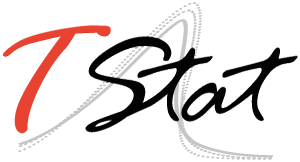Today researchers across a wide variety of fields find themselves having to analyze an increasing amount of qualitative information. The objective of this workshop therefore, is to offer participants an introduction to the requisite tools required for the successful planning, conducting and reporting of qualitative data analysis. To this end, an overview of the following approaches: quantitative analysis, quantitative content analysis and text mining, to text analysis is provided. The opening sessions focus on the fundamental role of data preparation to the analysis, before moving on to identifying themes and correlations using both text mining and content analysis. The final session addresses the more advanced topics of importing and exporting data, together with document classification. In common with TStat’s training philosophy, the workshop takes a hands-on approach to quantitative data analysis. Implementation of the methodologies discussed being illustrated using the scientific software QDA Miner, WordStat and WordStat for Stata.
WordStat is a flexible and easy-to-use text analysis software – whether you need text, mining tools for fast extraction of themes and trends, or careful and precise measurement with state-of-the-art quantitative content analysis tools. WordStat‘s seamless integration with SimStat – our statistical data analysis tool – QDA Miner – our qualitative data analysis software – and Stata – the comprehensive statistical software from StataCorp, gives you unprecedented flexibility for analyzing text and relating its content to structured information, including numerical and categorical data.
The Workshop is aimed at:
Academic researchers, evaluators, policy advisers, social workers, educators and students working in economics, public health, sociology, psychology and political science;
Data mining and market research analysts based in the automotive, market research, logistics or transportation, telecommunications sectors, needing to analyze comments from surveys, blogs, websites, social media platforms and other textual format sources;
Insurance analysts needing to analyze and categorize claims from customers;
Researches based in pharmaceutical companies and medical research laboratories required to analyze healthcare reports, notes from medical doctors, interviews and/or focus groups with patients.
We are currently putting the finishing touches to our 2023 training calendar. We therefore ask that you re-visit our website periodically or contact us at training@tstat.eu should the dates for the course which you are interesting in following not yet be published. You will then be contacted via email as soon as the dates are available.
THREE APPROACHES TO TEXT ANALYSIS
Qualitative Analysis
Quantitative Content Analysis
Text Mining
QDA MINER
Introduction and project management
Creating a new project from documents
Creating a new project from database or spreadsheets
Manipulating variables and cases
Codebook management and coding
Basic text retrieval and autocoding tools
WORDSTAT & WORDSTAT FOR STATA
Running WordStat from Stata and from QDA Miner
Content Analysis or Text Mining
Analyzing words without dictionaries – a text mining approach
Content Analysis – Principles of dictionary construction
Importing and exporting data
Introduction to automatic document classification
Geocoding & Mapping features
CORSO ONLINE
We are currently putting the finishing touches to our 2023 training calendar. We therefore ask that you re-visit our website periodically or contact us at training@tstat.eu should the dates for the course which you are interesting in following not yet be published. You will then be contacted via email as soon as the dates are available.

